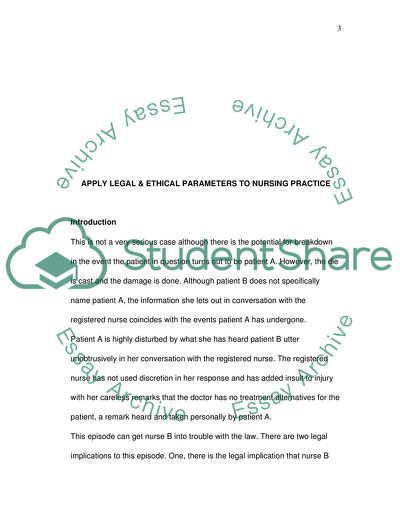Cite this document
(Apply Legal and Ethical Parameters to Nursing Practice Assignment, n.d.)
Apply Legal and Ethical Parameters to Nursing Practice Assignment. https://studentshare.org/nursing/1724089-apply-alegal-ethical-parameters-to-nursing-practice
Apply Legal and Ethical Parameters to Nursing Practice Assignment. https://studentshare.org/nursing/1724089-apply-alegal-ethical-parameters-to-nursing-practice
(Apply Legal and Ethical Parameters to Nursing Practice Assignment)
Apply Legal and Ethical Parameters to Nursing Practice Assignment. https://studentshare.org/nursing/1724089-apply-alegal-ethical-parameters-to-nursing-practice.
Apply Legal and Ethical Parameters to Nursing Practice Assignment. https://studentshare.org/nursing/1724089-apply-alegal-ethical-parameters-to-nursing-practice.
“Apply Legal and Ethical Parameters to Nursing Practice Assignment”. https://studentshare.org/nursing/1724089-apply-alegal-ethical-parameters-to-nursing-practice.


